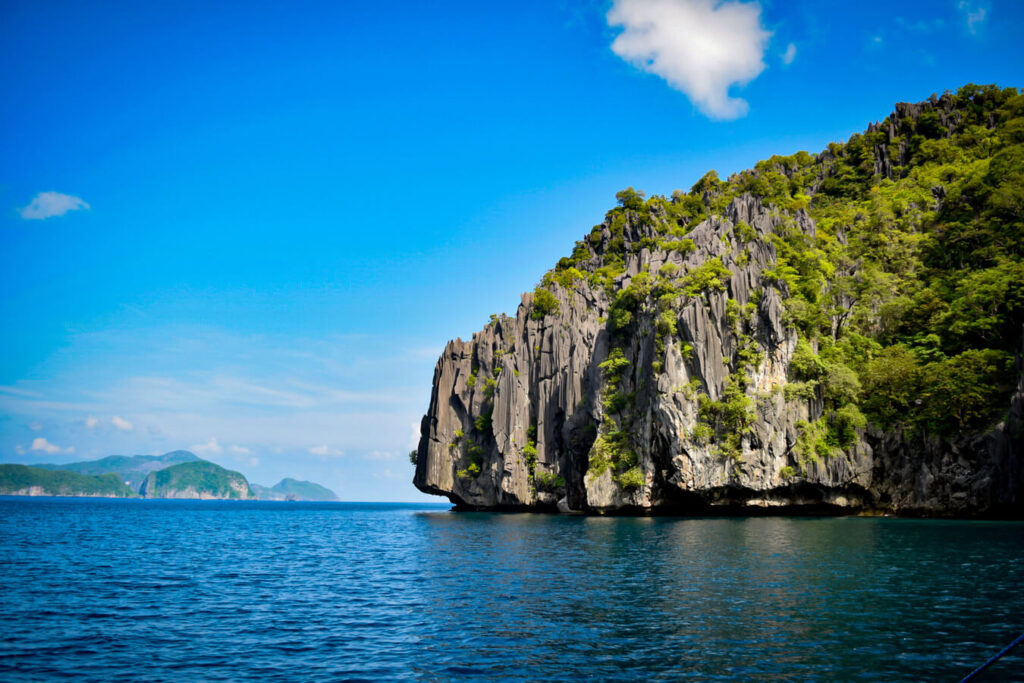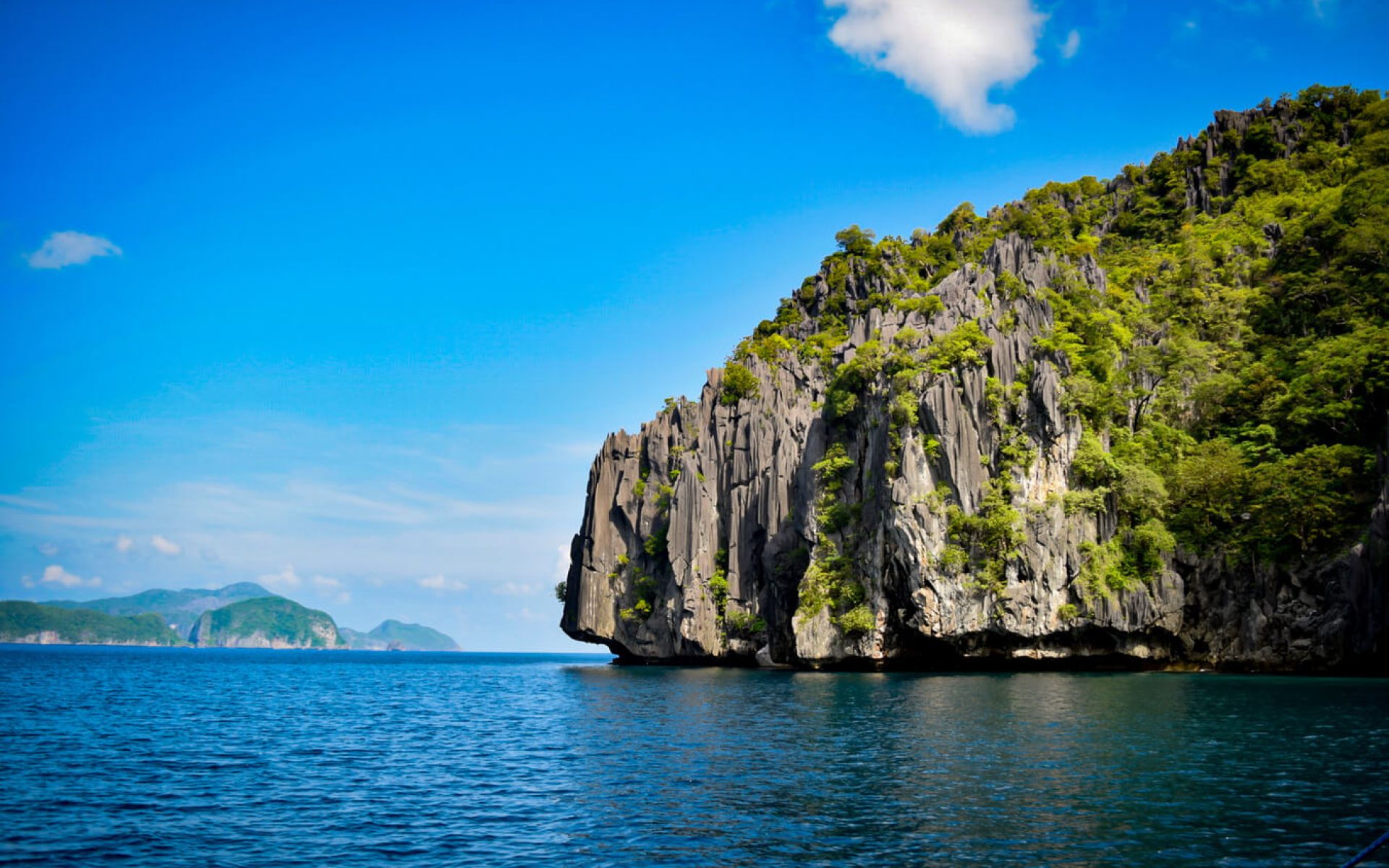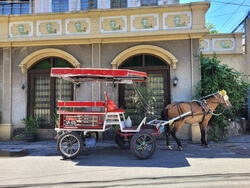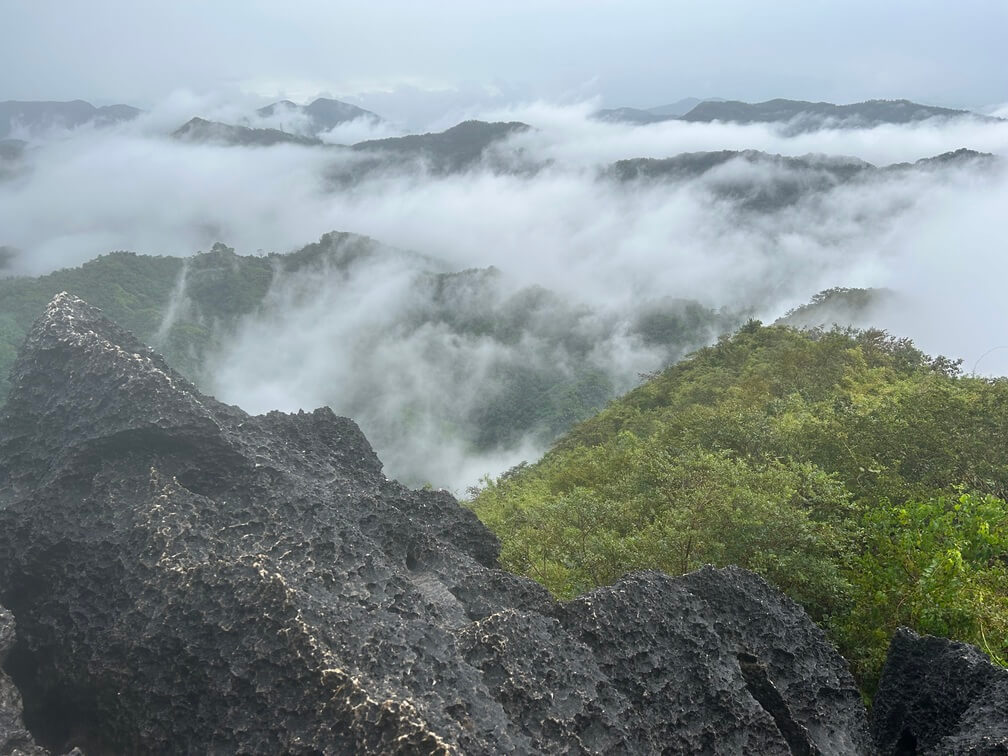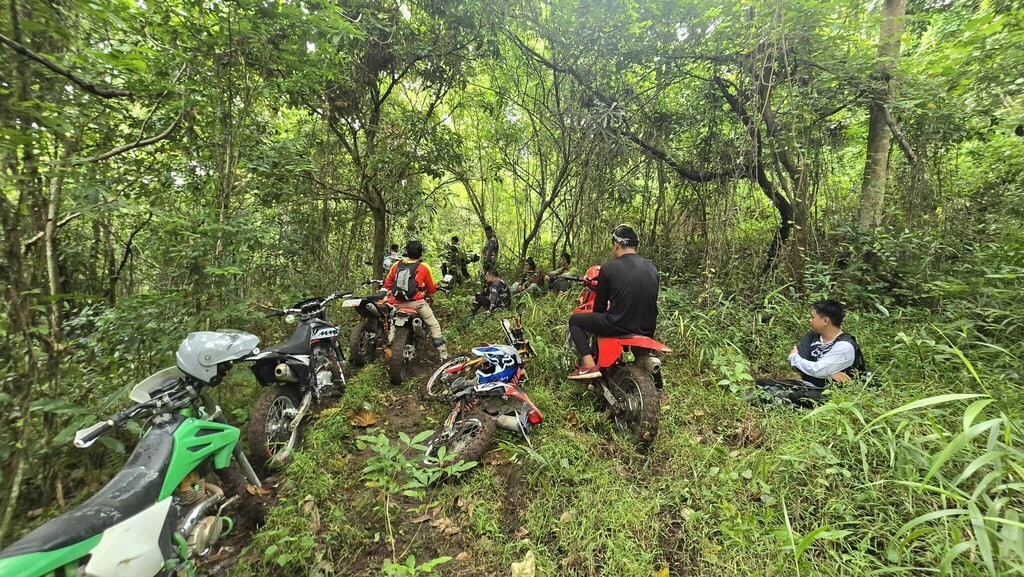Famished and wet, we trudged our way out of thick rows of passengers disembarking at San Jose Port. All of us came from Surigao del Norte, braving ferocious waves and the possibility of getting stranded at sea due to monsoon rains.
In a silly effort to save pesos, we began tackling the steep incline leading to the Dinagat Tourism Office. Alongside my hangry six-year-old, my 11-kilo backpack and four-kilo drybag swung side to side with every step. After a minute, we came across a habal-habal driver and asked for directions.“Ayaw niyo po ba sumakay na lang? Sampung piso lang naman po papunta doon. Para di po kayo mahirapan ng anak niyo (You don’t want a lift? It only costs P10 to get there, to make it easier for you and your daughter),” he said.
Thin and meek, the 30-something driver, Kuya Giovanni, has been nothing but friendly and caring – but above all, worried for my kid – from the get-go. I obliged, a decision that proved wise after seeing the 45-degree slope before us.
The majority of the population in the Province of Dinagat Islands, or simply Dinagat – one of the Philippines’ youngest and smallest provinces – are fisherfolk and habal-habal drivers like Kuya Giovanni. Save for a few rural banks, there are no big businesses on this side of the archipelago. Not one big-brand-drugstore, let alone hypermarkets, superstores, or malls. Everything consumed in this island-province is hauled from Surigao del Norte southwest of it, which is a good one to one and a half hours by ferry. We boarded the Seahorse Express – the only ferry that serves the route – at 8:30 am. It left the port in Surigao Boulevard at 11:30 am, after loading in sacks of rice, TV sets, electric fans, and other commodities bought by Dinagat’s residents.

We ended up in a seaside lodge in San Jose that overlooks ports on either side and a man-shaped island named Lalaking Bukid (“male mountain” in the vernacular) or “Gat”. Together with Babaeng Bukid (“female mountain”) or “Dina” in the municipality of Libjo, they make up “Dinagat”.
After plopping our bags onto the floor, I agreed to do a half-day tour with Kuya Giovanni, beginning with a massive castle on a hill. Islander’s Castle, as it’s called, is a local pride. On land tours, every habal-habal driver encourages a look-see of its rose-colored spires and strapping brick pillars. It’s also one of the most well-known properties of the Ecleos, a political clan that has been ruling the province for decades.

The Ecleos are a ubiquitous presence here. Almost all schools and chapels are named after and owned by them. Tarpaulins that read “Happy Birthday” next to a photo of an Ecleo elder hung on trees and walls. Theirs is the epitome of a political dynasty, one of the country’s enduring political realities, that became a superpower by successfully merging and taking hold of both politics and religion.
The Philippine Benevolent Missionaries Association, Inc. (PBMA) is a non-sectarian religious organization that is unique to Dinagat. It was founded by Ruben Ecleo Sr. in 1965 and is touted as a foundation that offers free faith-based healing services.
Locals treat PBMA and its founder, the “Divine Master”, with utmost respect – even believing that he was Christ incarnate. Statistics estimate PBMA followers to be at 50 or so percent of the population. That includes Kuya Giovanni, who is a PBMA missioner – a title given to one who is allowed to conduct healing rituals.

Kuya Giovanni proudly showed me his ring – a chunky silver loop with a faux diamond at the center – signifying his rank as a healer. Others, he said, can even summon the dead back to life.
“Released – ‘yan po ang tawag namin sa mga nabuhay na patay (Released – that’s what we call people who are reincarnated).”
Healers are prohibited from asking for remuneration for services, he explained. On the other hand, the Ecleos require their members to make monthly contributions – similar to tithing – and training fees for healing and reincarnation rituals.
We spent more than five hours touring two of seven municipalities, and not once did he tire of sharing praises for PBMA, as well as the Ecleos’ prophecies. Apart from the name “Ruben” appearing several times in the Bible, he also tells me that the arrest of their founder’s successor – Ruben Ecleo Jr. – for the murder of his wife and money laundering has been prophesied in the Holy Word. These, along with the fact that despite clashes with law enforcement, members only seem to increase in Southeast Asia and North America, are sufficient reasons for believers to hang on.
Outside of the province, many perceive PBMA as a cult or a scam.

Brimming with unspoiled beaches, caves, falls, limestones, and mineral-rich mountains all over its 1,036-square-kilometer terrain, the province is among the most abundant in natural resources in Mindanao. For three days, I’ve seen expanses of thriving corals just meters away from various shores, and public beaches that can rival expensive, privately-owned ones elsewhere. Cruising past San Jose to Cagdianao, one enjoys a stunning vista of copper-colored mountains – a hue resulting from the mixture of rainwater with the mountains’ oil-heavy composition. In the northernmost municipality of Loreto, a thousand hectares of bonsai forest sprawls across Mount Redondo.
Despite its enviable biodiversity, Dinagat remains as one of the poorest provinces in the country.

Loreto is heavily engaged in mining – allegedly with the go-signal from the Ecleos. Mount Redondo’s bonsai forest is owned by a combination of Chinese, Japanese, and Western mining companies. Soon, environmentalists fear, this unique feature will be nothing but a memory.
As we made our final stop in Tagbirayan Beach, I asked Kuya Giovanni how he finds working here during lean season. He tells me most of them earn Php100 to Php300 a day. Our half-day tour, which covers about 45 kilometers of the island back and forth, costs Php800, but that doesn’t happen every week. He has a wife and two kids, all of whom he uprooted from their hometown in General Santos City, where income was more promising, so that they can all dedicate their lives to PBMA’s cause.

One hundred a day for a family of four. Meanwhile, the Ecleos have schools, millions in their bank accounts, and a gated hillside castle patrolled by a guard 24/7.
Apart from “unbreakable”, foreign countries also call the Filipino faith “fatal”. They lament that our excessive reliance on faith, even amid corruption-led casualties, prevents us from seeking larger truths that will allow us to implement sound, real-world solutions to our problems.
“Do you have regrets?” I asked.
He shook his head and smiled with utter contentment, that one may even allude to oblivion. “Lahat naman po tayo may problema, ma’am. Nasa tao na rin po. Mahirap, pero ang importante, masipag tayo, kumakayod, at may pananampalataya (We all have problems. It depends on the person. It’s hard, but what’s important is that we keep pushing on and holding on to our faith).”
For tours around Dinagat Islands, you can send Kuya Giovanni a message or call or him at 09460108761.



